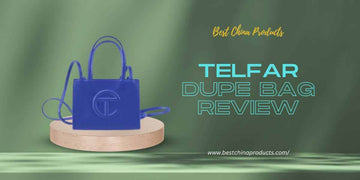Are you worried about buying fake Nike products? You're not alone.
With Nike being one of the most counterfeited brands worldwide, it's crucial to know how to spot fakes before making a purchase.
This guide will walk you through the key differences between real and counterfeit Nike shoes, including packaging, design details, and trusted places to buy authentic products.
Stay informed and avoid getting scammed.
Real vs Fake Nike
Nike's Most Counterfeited Products

Nike shoes are among the most counterfeited items, particularly limited edition releases such as Off White x Nike collaborations and Travis Scott x Nike Air Jordan sneakers. Counterfeiters target these high-demand products due to their profitability, making it crucial for consumers to be vigilant when purchasing such items.
Analyze the Product Packaging

Authentic Nike products come in carefully designed packaging, featuring accurate labeling and tagging.
-
Essential Details: Genuine Nike product packaging prominently displays essential information, including the style name, size, serial number, SKU (stock keeping unit), and barcode. These details are typically printed clearly and accurately on the box, providing important product information for consumers.
-
Printing Quality: Counterfeiters often attempt to replicate Nike's packaging, but discrepancies in printing quality may give away the authenticity of the product. Authentic Nike packaging maintains high printing standards, with sharp, clear text and graphics. Conversely, counterfeit packaging may exhibit inferior printing quality, such as blurred text or uneven colors.
-
Font Size and Layout: Pay attention to the font size and layout of the text on the packaging. Authentic Nike packaging maintains consistency in font size and layout across all printed information. In contrast, counterfeit packaging may feature irregularities in font size or layout, indicating a potential counterfeit product.
- Original Packaging: The presence or absence of original packaging is another indicator of authenticity. Authentic Nike products are typically sold with their original packaging intact, bearing the brand's official logos and design elements. Therefore, the absence of original packaging or packaging that appears to be tampered with should raise suspicion and prompt further scrutiny.
Examine the Design Details

One of the key indicators of counterfeit Nike products lies in the design details. You should pay close attention to aspects such as stitching quality, logo alignment, and overall craftsmanship.
-
Stitching Quality: Counterfeit Nike shoes often exhibit subpar stitching, characterized by crooked lines, uneven spacing, and unfinished seams. Genuine Nike products, on the other hand, feature meticulous stitching with consistent patterns and neatly finished edges.
-
Logo Alignment: Authentic Nike shoes boast precisely aligned logos, positioned symmetrically and centered within designated areas. Conversely, counterfeit models may display logos that are misaligned, skewed, or inaccurately placed, signaling inferior craftsmanship.
-
Craftsmanship: Genuine Nike footwear showcases superior craftsmanship, evident in the attention to detail and overall build quality. Counterfeit products, however, may lack finesse and exhibit sloppy construction, such as uneven seams and rough edges.
-
Label Accuracy: Counterfeit Nike shoes often bear misspelled labels or logos with mismatched fonts, deviating from the brand's standard typography. Genuine Nike products adhere to strict quality standards, ensuring accurate labeling and consistent branding across all components.
- Logo Size: Another red flag for counterfeit Nike products is the inaccurate sizing of logos. Authentic Nike shoes feature logos proportionate to the shoe's size, whereas counterfeit versions may display disproportionately large or small logos relative to the shoe's dimensions.
Authenticate Nike Shoes Based on Construction

Authentic Nike footwear is renowned for its premium materials and impeccable craftsmanship. You can verify the legitimacy of Nike shoes by meticulously examining several key components: the upper, midsole, outsole, and tongue.

-
Upper: Genuine Nike shoes boast flawlessly executed stitching, indicative of superior craftsmanship. Look for even stitching patterns without any loose threads or irregularities. The materials used should feel soft and supple to the touch, with no visible creases or signs of wear. Additionally, authentic Nike shoes exhibit consistent coloring throughout the upper, with no overlaps or inconsistencies.
-
Midsole: A crucial aspect of authenticating Nike shoes is inspecting the midsole. Unlike counterfeit models, genuine Nike footwear typically features a midsole that is securely glued rather than stitched. This adhesive construction ensures durability and stability while maintaining the shoe's structural integrity.
-
Outsole: Another telltale sign of genuine Nike shoes lies in the composition of the outsole. Authentic Nike footwear is equipped with outsoles made from high-quality rubber, offering flexibility and excellent traction. Counterfeit shoes often employ inferior materials that lack the same level of durability and performance.
- Tongue: The tongue of authentic Nike shoes serves as another point of verification. It commonly bears the iconic Nike logo and contains essential product information, including a unique serial number. This serial number should match the one found on the shoe's original packaging, providing further confirmation of authenticity.
Evaluate Online Listings

In today's digital age, many consumers opt to purchase Nike products online, increasing the risk of encountering counterfeit merchandise.
When browsing online listings, consumers should assess the credibility of the seller and scrutinize product descriptions for spelling errors, grammar mistakes, and unusually low prices.
Authentic Nike products are rarely heavily discounted, so significant markdowns should raise suspicion. While platforms like Amazon and eBay host third-party sellers, consumers can mitigate risks by purchasing directly from Nike's official website or authorized retailers.
Where to Purchase Genuine Nike Products?
To guarantee the authenticity of Nike products, it's strongly recommended to make their purchases from authorized retailers. These include reputable establishments such as Nike's official website, flagship stores, and well-known outlets like Footlocker, Dick's Sporting Goods, Nordstrom, and Kohl's.
Authorized retailers have direct sourcing agreements with Nike, ensuring that the merchandise they offer originates from the official supply chain. This significantly reduces the risk of encountering counterfeit products.
While online marketplaces may provide convenience and a wide selection, consumers should exercise caution. It's imperative to prioritize purchasing from trusted sources to sidestep potential counterfeit scams.
Unauthorized sellers on online platforms may offer counterfeit Nike items at seemingly attractive prices, but these products often lack the quality and authenticity guaranteed by authorized retailers.
What to Do If You Pick Up Fake Nike’s by Accident?
Discovering that you've inadvertently purchased counterfeit Nike products can be frustrating, but taking swift action is essential to mitigate any potential damage. Here's what you should do if you find yourself in this situation:
-
Report the Seller: Immediately report the seller to the platform or marketplace where the purchase was made. Most online marketplaces have policies against selling counterfeit goods, and reporting the seller helps prevent further fraudulent activity.
-
Leave Detailed Reviews: Share your experience by leaving detailed reviews to warn other potential buyers. Describe the discrepancies you noticed with the product and emphasize the importance of purchasing from authorized retailers to avoid counterfeit scams.
-
Contact Customer Support: Reach out to the customer support team of the platform or marketplace where the counterfeit purchase occurred. Explain the situation and inquire about potential refund options or recourse available to you as a consumer. Provide any evidence or documentation, such as photos or screenshots, to support your claim.
- Take Preventive Measures: While rectifying the situation may be challenging, taking proactive steps can help prevent further scams. Stay vigilant when making future purchases, and always prioritize buying from trusted and authorized retailers. Educate yourself and others about the signs of counterfeit products to minimize the risk of falling victim to similar schemes in the future.
Frequently Asked Questions (FAQs):
How can I tell if Nikes are fake?
Spotting fake Nikes involves scrutinizing packaging, design details, construction quality, and online listings. Look for inconsistencies and discrepancies that indicate counterfeit products.
Where are fake Nikes sold?
Fake Nikes are often sold on online auction sites and marketplaces where regulation is limited. Consumers may unknowingly purchase counterfeit products, especially if they aren't vigilant.
Does Footlocker sell fake Nikes?
Absolutely not! Footlocker is a trusted partner of Nike and sells genuine Nike products sourced directly from the brand. Shopping at authorized retailers like Footlocker ensures authenticity.
Should I Buy Real or Fake Nike’s?
-
Quality Assurance: Authentic Nike products undergo strict quality control measures to ensure high-quality materials and craftsmanship. They're designed to provide comfort, performance, and durability, which may be lacking in counterfeit items.
-
Ethical Responsibility: Purchasing fake Nike products supports illegal activities such as counterfeiting, which undermines the economy and legitimate businesses. By choosing authentic Nike products, you're supporting ethical practices and contributing to the integrity of the industry.
-
Safety Concerns: Counterfeit products may not adhere to safety standards and regulations, posing potential risks to your health and safety. Authentic Nike products are manufactured using safe materials and processes, giving you peace of mind.
-
Warranty and Support: Authentic Nike products come with warranties and customer support, ensuring that you're covered in case of any issues or concerns. Counterfeit items typically lack these protections, leaving you with little recourse if problems arise.
- Brand Experience: Genuine Nike products offer the complete brand experience, including access to exclusive events, promotions, and collaborations. By purchasing authentic items, you're engaging with the brand in a meaningful way and enjoying all the benefits it has to offer.
Conclusion
Distinguishing between real and fake Nike products requires attention to detail, research, and vigilance.
By familiarizing themselves with Nike's packaging, design elements, construction quality, and purchasing guidelines, consumers can minimize the risk of purchasing counterfeit merchandise.
Furthermore, opting to buy from authorized retailers and reputable sources enhances the likelihood of obtaining genuine Nike products.
In an era plagued by counterfeit scams, knowledge and caution are paramount in safeguarding consumers' interests and preserving the integrity of renowned brands like Nike.






